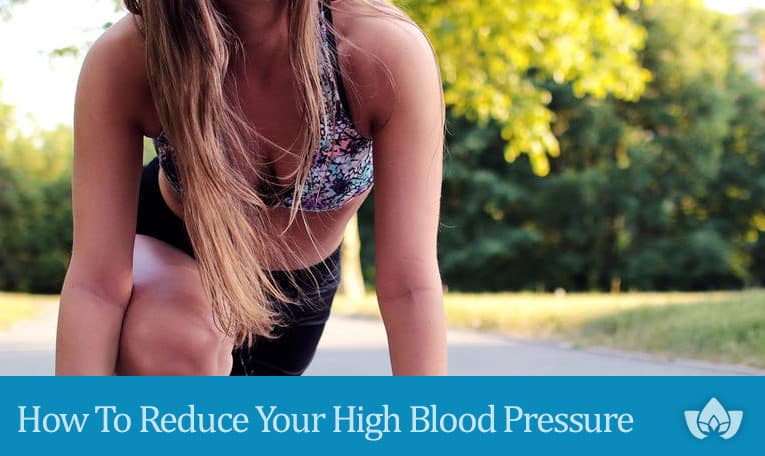
High blood pressure currently stands as one of the most common ailments faced by people of all ages across the world.
In fact, you likely know at least one person living with the condition.
According to a Statistics Canada study from 2014, nearly 18% of Canadians aged 12 and over live with high blood pressure.
And this trend seems to be on the rise.
Therefore, it’s becoming increasingly important to take care of your health and seek medical advice when necessary.
Fortunately, modern medicine provides a variety of options for treatment and symptom management surrounding high blood pressure.
Naturopathic medicine is one such option.
As a naturopathic doctor in Mississauga, I’ve seen a number of patients over the years with high blood pressure concerns.
But what causes it, and what can be done about it?
Further, can anything be done to prevent it?
If you find yourself asking these questions, you’ve come to the right place.
Keep reading to hear all about high blood pressure and how naturopathic medicine can help.
What Is High Blood Pressure?
Blood pressure is the way we measure how forcefully your blood pushes through the blood vessels in your body.
When a doctor checks your blood pressure, they will use two different numbers: your systolic blood pressure, and your diastolic blood pressure.
Your systolic blood pressure describes the amount of pressure present inside your arteries while they’re pumping blood.
Conversely, your diastolic blood pressure measures the amount of pressure present inside your arteries while your heart rests between beats.
When your arteries are in optimal health, the blood flows easily and stays at or near the ideal rate of between 90 and 120 systolic, and between 60 and 80 diastolic.
This makes things easier on your heart since it doesn’t have to work as hard.
Alternatively, stiff or clogged arteries can cause your blood pressure to rise.
RELATED Naturopathic Solutions For High Cholesterol
This pushes your heart to work harder and harder, which in turn has been linked to numerous health problems.
For instance, untreated high blood pressure can lead to heart disease and other potentially life threatening conditions.
That’s why early intervention is so important.
What Causes High Blood Pressure?
The truth is, we’re still in the process of understanding what causes high blood pressure.
But there are many different factors which commonly contribute to it, such as lack of exercise and access to proper nutrition.
RELATED Top 5 Illnesses All But Eradicated By Nutrition
Generally, the way we treat high blood pressure is by using medication.
And while this medication can work, it often comes with a host of side effects, including dizziness, disrupted sleeping patterns and insomnia, and erectile difficulties.
Fortunately, these side effects can be avoided through naturopathic alternatives.
Naturopathic Approved Tips For Reducing Your Blood Pressure
In many instances, you can work to reduce your blood pressure naturally by making a few simple lifestyle changes.
By incorporating these changes into your daily life, you’ll not only be working to reduce your blood pressure.
You’ll also be improving your overall health and subsequently reducing your risk for developing a variety of ailments ranging from type 2 diabetes to many types of cancer.
Read on for tips on lifestyle changes that can help with reducing your blood pressure and help you to feel your best.
1. Quit Smoking
For years now, doctors have known about the link between smoking and blood pressure.
Specifically, a link has been made between nicotine, one of the chemicals found in cigarettes, and high blood pressure.
When you take a puff of a cigarette, nicotine causes your heart to increase activity and causes a subsequent rise in blood pressure.
Interestingly, according to a study from P. Omvik of the University of Bergen School of Medicine in Norway, smokers tend to have a slightly lower average blood pressure than the rest of the population.
However, this only refers to your blood pressure when not smoking.
The bottom line is that the act of smoking puts undue strain on your heart that, over time, can lead to serious complications.
This is especially true if your blood pressure is already high prior to smoking.
2. Limit Your Alcohol Intake
Excessive amounts of alcohol can also contribute to high blood pressure.
A 2020 study by Tasnim et al. found that excessive alcohol consumption can lead to drastic fluctuations in your blood pressure.
Over time, these fluctuations can lead to issues, specifically if you already live with high blood pressure.
If you’ve already been diagnosed with high blood pressure, your doctor has likely advised you to limit your alcohol intake.
However, limiting your alcohol consumption is also important for prevention of high blood pressure.
It’s generally recommended that your alcohol intake not exceed 2 drinks per day for men, and 1 drink per day for women.
One drink is equal to 12 ounces beer or 4 ounces of wine.
In addition to reducing your blood pressure, limiting your alcohol intake can also provide you with numerous health benefits such as improved liver health as well as reduced depression and anxiety.
3. Get Some Exercise
Exercising to reduce your blood pressure may sound counter intuitive at first.
After all, going for a bike ride, rowing, running, or doing some other form of cardiovascular exercise increases your heart rate.
So, it would make sense to think exercise will also raise your blood pressure.
But your heart is a muscle just like any other in your body.
And just like how bicep curls will strengthen your biceps, doing cardio will strengthen your heart.
This allows it to pump blood through your body more efficiently, put less strain on your blood vessels, and keep your whole system healthier.
Pushing your body with exercise, then allowing it to rest and recover, helps keep your body’s various systems in check.
This includes your sympathetic and parasympathetic systems, the former which keeps you alert and aware, and the latter which oversees relaxation.
Keeping these two in harmony also helps keep your blood pressure in line, so there’s another added benefit.

4. Load Up On Nitrate Heavy Vegetables
If you’ve ever followed diet trends, you’ll notice how quickly things come in and out of vogue.
Fat provides an excellent case in point.
Once upon a time, fat was considered the enemy and something to avoid at all costs.
Now a days, however, some types of fats have been recognized as an important part of our nutrition.
For instance, The Heart and Stroke Foundation of Canada recommends including a small amount of healthy fats and oils into your diet in order to help with absorption of fat soluble vitamins, such as vitamin A, vitamin D, vitamin E, and vitamin K.
Nutrition trends can go in the opposite direction as well.
For instance, artificial sweeteners were once considered to be a friend, especially to our waistlines.
However, an increase in awareness of the health complications associated with them has started to cause a change in public perception.
Nonetheless, there’s still one thing that never goes out of style, and that’s eating plenty of vegetables.
Vegetables provide all sorts of health benefits and including many different types of them in your diet is important whether or not you’re living with high blood pressure.
But if you do happen to have high blood pressure, they can help you tremendously.
And the way it works has something to do with nitrates.
Not to be confused with nitrites, the nasty stuff you’ll find in processed meats, nitrates are a naturally occurring substance found in just about all vegetables and fruits.
When you consume it, your body converts it into nitric oxide.
As the nitric oxide flows through your veins, it helps relax, or dilate them, which makes the entire process of blood flow much easier on your body.
This results in lower blood pressure.
While most vegetables have nitrates in them, some of the most nitrate heavy vegetables include:
- Arugula
- Celery
- Lettuce (particularly iceberg, butter leaf, or oak leaf)
- Beets and beet greens
- Spinach
- Cress
- Carrots
- Bok choy
- Rhubarb
- Swiss chard
- Turnips
Book Your Appointment With The Mindful Healing Clinic Today
Please note that none of the above advice should be a substitute for speaking with a qualified healthcare practitioner.
If you have been diagnosed with high blood pressure, or you believe you have it, contact Dr. Maria at the Mindful Healing Clinic.
You’ll get to book a FREE health and wellness session, where you’ll get a chance to sit down with Dr. Maria and explain your health concerns.
From there, Dr. Maria will answer your questions and help you understand how to address your health concerns and live healthier.
Book your appointment with The Mindful Healing Clinic today.
Until next time,
Dr. Maria Cavallazzi, N.D
Mindful Healing Naturopathic Clinic
Mississauga, ON L5M 1L7
(905) 819-8200
► https://g.page/MindfulClinicNaturopathic
Dr. Maria Cavallazzi is a medical doctor from Colombia where she practiced as a family physician for 8 years until she moved to Canada 16 years ago and became a naturopathic doctor in Mississauga.


